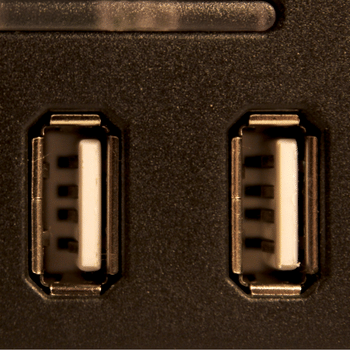USB ports: the risks that a simple connector can hide
 Of all the technologies that permeate our lives, the USB is undoubtedly the most common. You may not realize it, but take a moment to think about how many places and devices have a USB port: desktops, laptops, smartphones, smartwatches (and other IoT gadgets)...Even our sound systems, TV sets, and automobiles have their own USB ports!
Of all the technologies that permeate our lives, the USB is undoubtedly the most common. You may not realize it, but take a moment to think about how many places and devices have a USB port: desktops, laptops, smartphones, smartwatches (and other IoT gadgets)...Even our sound systems, TV sets, and automobiles have their own USB ports!
No wonder they are so popular. Short for Universal Serial Bus, the USB is so successful precisely because of the main characteristic it was designed for: its universal use - transmitting data and power between practically any two devices. Just to have an idea, if we were to list the ports that the USB replaced because of its practicality, this list would include serial ports, parallel ports, game ports, the Firewire, the PS/2...
Believe it or not, the widespread popularity of USB ports can also pose risks to your cyber security. The most famous threat is the classic malicious flash drive: an innocent person finds a device lying around and, out of curiosity, ends up connecting it to their own computer to find out what it contains. The device is probably infected with malware that endangers the security of the person using it.
What about the charging totems?
It is increasingly common to find totems with USB ports that allow people to charge their phones, especially in shopping malls and airports. This has also become common in ride-sharing app vehicles. Even USB sockets, which can be placed in the wall of any residence or commercial establishment, are now available on the market.
However, have you ever stopped to think who — and what — might be behind that seemingly harmless port where you can get that free charge that can save your device's battery? Cybercriminals commonly install these ports (or reprogram those already installed) to steal data and spread malware specific to mobile devices.
The problem in certain countries has become so serious that a rather curious device was invented: the “USB condom”. This is an intermediate connector that disables the data transfer between the two ends of a cable, ensuring that if you plug your phone into a malicious charging totem, it will only get a power charge. As funny as it may sound, this accessory is popular among travelers who spend a lot of time at airports or bus terminals.
Don't trust strange ports!
Our next tip is simple: just as you wouldn't plug a suspicious USB flash drive into your computer, you would do the same with a USB port offering you a power charge. If the problem is a low charge on your phone, consider buying a power bank — or a portable battery. Some of these can provide up to three full charges without posing any risk to your privacy.
Article originally written in Portuguese by Perallis Security Content Team: Porta USB: os riscos que um simples conector pode esconder — Perallis Security
